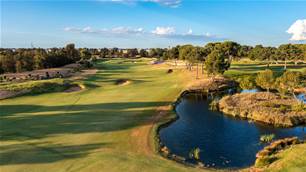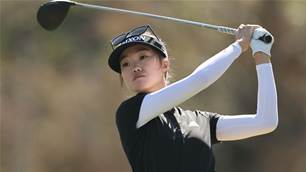Tim Sheens believes the 2013 Rugby League World Cup in the UK was a better tournament than the 2017 edition hosted by Australia.
The World Cup four years ago was argually the most successful World Cup in history with a large profit made and an average attendance of 16,374 as matches were held in England, Ireland, Wales and France.
The 2017 competition saw games played in Australia, New Zealand and Papua New Guinea, with an average crowd of 13,646 per match.
Sheens, who led Australia to victory in 2013, said last year's tournament had some big moments but the 2013 edition shaded it overall.
"The final was close. [But] I thought the one in England in 2013, I'm not trying to be biased or anything, but I think it was a very attractive series from the point of view that everyone wanted to be here in England," the veteran coach told Inside Sport.
"The weather's more condusive to playing rugby league, given the heat the poor boys put up with in Cairns and in the northern Territory and in PNG. That was murder. So it was a bit difficult with that.
"But I thought the crowds here in England in 2013 were great. What did we get, 75,000 for the final? I know the people will be looking forward to the next World Cup here [in 2021]. But both World Cups have been great, high performance.
"In 2013 I don't think Papua New Guinea won a game and Tonga was a bit disappointing. It was a lot different this time wasn't it. I think the so-called second-tier nations stood a lot more [in 2017]. Mind you when the big boys got serious in the major games, there was 60 put past Fiji and so on.
"But I thought Fiji, Tonga, Papua New Guinea, those three in particular but also you'd go to Lebanon as well really, who with Sydey-based players really put the pressure on everyone they played. That probably raised the overall level.
"Where as in 2013 it was probably heavily dominated by the big three."
Sheens, who is now coaching Hull KR in England, spent seven years in charge of the Kangaroos.
At the 2017 World Cup Australia retained the trophy with a close 6-0 win over England in Brisbane.
The 67-year-old was pleased to see the old guard of Cameron Smith, Cooper Cronk and Billy Slater have success at another tournament.
"It was brilliant to see the older boys survive," he said.
"You didn't know what their bodies were going to look like. It was always about age and healthy knees and healthy shoulders and things. To see the Melbourne connection come back [was great].
"With Billy from 2013 to virtually this year he didn't play much football for the Australian side and you can see why he'd be missed. To me he's still the number one fullback in the game, by a country mile actually.
"I think he's so good, I don't know how long he's going to keep playing. It will be interesting to see how long he bats on for Melbourne, Queensland and Australia."
Related Articles

Playing From The Tips Ep.112: PGA Championship

Review: Glenelg Golf Club








.jpg&h=115&w=225&c=1&s=1)




